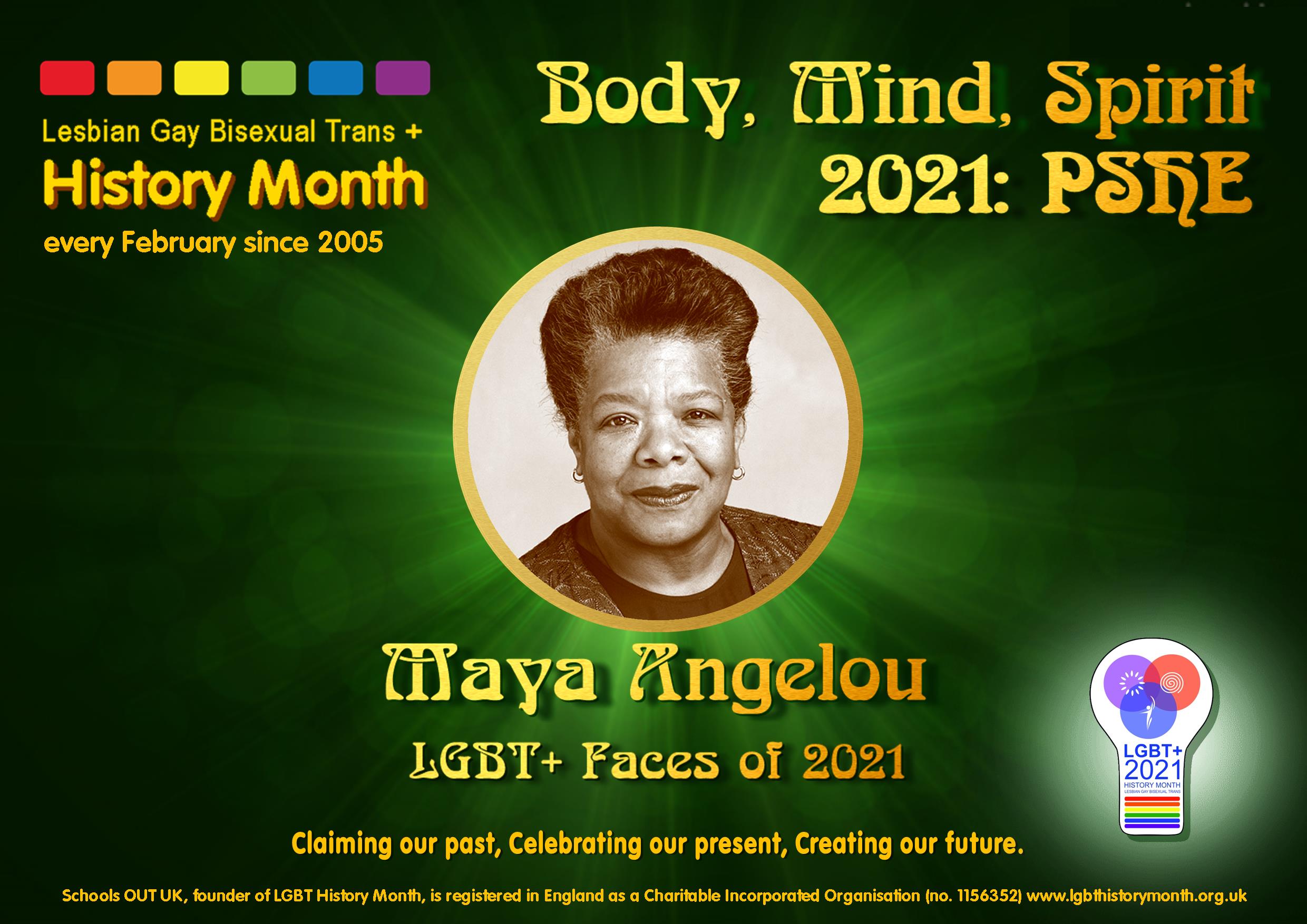Maya Angelou. What is the first thought that springs to mind at that name? Have you heard it before? Perhaps it’s a quote that pops into your head, or a poem, or a book you read for school. Perhaps it’s nothing, if you’ve never encountered her before. Whatever your experience, let me introduce you.
Maya Angelou (1928-2014). Poet. Activist. Ally. Dancer. Mother. Advocate. She wore many hats, played many roles, but she is most well-known for her voice. The one that was almost silenced.

Born Marguerite Johnson in Missouri, USA in 1928, she grew up close to her mother, grandmother, and brother. Her parents split up when she was 4 and she was sent with her older brother to live with their grandmother; four years later, they returned to live with their mother. At the age of 7, Maya was raped by her mother’s boyfriend. She used her voice to tell her brother, who then told her uncles. The rapist was swiftly killed. At this, Maya became mute. In her first autobiography, she stated, “I thought, my voice killed him; I killed that man, because I told his name. And then I thought I would never speak again, because my voice would kill anyone.” She didn’t speak for nearly 5 years.
Maya and her brother returned to live with their grandmother and during her 5 years of silence, Maya was introduced to literature. Eventually, a teacher and family friend, Bertha Flowers, helped her to speak again, using the power of the written word.
Soon after, Maya and her brother moved with their mother to California where Maya finished high school, gave birth to her only son at the age of 17, and became San Francisco’s first Black female cable car conductor.
In the 1940s, she worked as a singer and a dancer, as a cook, and as a prostitute for both men and women. She married a white ex-sailor in 1950, at a time when interracial relationships were condemned. The marriage only lasted 4 years, but she kept the name that the world came to know her by.

In 1959, she met novelist John Oliver Killens who encouraged her to write and she joined the Harlem Writer’s Guild. Soon after, she joined Martin Luther King Jr. in his civil rights work, working as a coordinator and fundraiser for the movement.
In 1962 she moved to Cairo, then to Ghana where she worked as a freelance writer. In the mid 1960s she returned to the United States where she became involved in film and theatre and became the first Black woman to have a screenplay produced as a feature film.
In 1981 she was offered a professorship at Wake-Forest University in North Carolina, despite having no bachelor’s degree. And it was in this role that she continued to write, to teach, and to inspire until her death in 2014.
Maya Angelou had a varied life. She lived life so fully and deeply that she filled 7 autobiographies (and was working on an 8th at the time of her death). My thoughts are that one would have to live an interesting, intense life to fill that many books and to become most well-known for one’s autobiographical works. In addition, she wrote reams of poetry, all of it powerful, intense, and reflective. In all of her work, she explores themes of economic, racial, and sexual oppression and in her life and legacy, she champions the rights of all humans.

Don’t let me reduce Maya Angelou’s life down to resumé points and biographical details; let her tell her own story in her own beautiful words. Read her autobiographies, read a poem, write out your favourites of her inspirational words and put them on your wall, and be inspired to write your own inspirational words.
Her autobiographical work follows a fiction-like style, with elements such as dialogue and events connected thematically. It was therapeutic for her and it opened up a whole new way of approaching the memoir genre. Communicating her trauma in this way helped her and continues to help others to face and deal with the trauma in their lives. Between her autobiographies and her poetry, she had something to say; she could not be silenced.
Maya Angelou’s life, work, and words continue to resonate with today’s world. As we continue to explore our own stories and how they fit in with or speak to greater humanity, we can look to Maya Angelou’s courage to find our own voices, to lift them up, to rise, and to help each other to rise. May the power of her words and her story be inspiration for you to overcome your own challenges, to recognize your own value as you navigate where you fit or with whom you identify, and finally to proclaim, I am human and I belong.

Get to know Maya
- To read more about Maya Angelou, find her autobiographies in Library Search.
- You can also find a 90 minute documentary about her on BoB or a dramatisation of her autobiographies on BBC.
 Library
Library Ketsia Snider
Ketsia Snider 1611
1611


